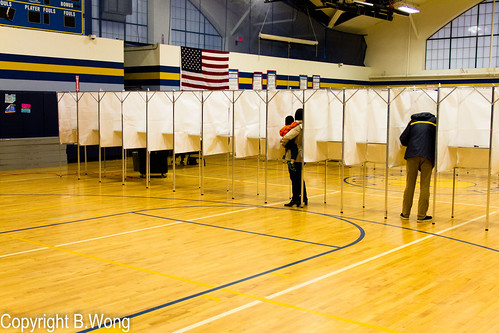Someone today acknowledged the fact that an audience of folks had likely heard many keynote presentations over the last decade or so warning, proclaiming, and evangelizing on the need to change schools to better meet the shifting demands of the modern workforce. This was a lead in to the question of what the assembled educators should do about it and what they might ask employers to help them focus the work of school.
For my money, it’s all the wrong question. As much as I want every student I’ve ever known to find gainful, satisfying employment, shooting for a successful workforce aims below the best possibility of what American schools can be.
In an election season jacked up on discourse and discord, we see the highlights of how worker-focused schools are set to fail our country if they do not become citizen-focused schools.
Workers who know how to collaborate, innovate, adapt, and design are still less powerful than citizens who know how to organize, advocate, and investigate.
Rather than asking employers what schools can do to produce students to fit their needs, we should be speaking to politicians, public servants, and civic leaders asking what it takes to get their attention, what effective advocacy looks like, and what problems are on the horizon for communities and cities that our students will need to be ready to tackle.
Chasing jobs that don’t yet exist and may only exist for a moment is a fool’s errand not worthy of our children. Learning how to craft a society that realizes the best ideals of our democracy, our republic, and our grand experiment is not only a worthy goal, but a necessary one as well.
From Theory to Practice:
- As you wrap up your school year or plan for the start of next year, make citizenship and the kinds of citizens your school community is working to create a central conversation. Keep in mind this is a conversation for all subject areas, not just social studies. Citizen scientists, public health, and a mathematically literate public are just as important as those who volunteer and show up at the polls.
- Invite civic leaders in to build out the conversation. Ask anyone from the city manager to the mayor to local congressional leaders to come speak across classes on where any given subject area intersects with their work.
- Think about the civic centers your schools can become. Host candidate forums. Ask leaders to come in and participate in town halls. Keep voter registration forms on the counter of your office and linked on your homepage. Make participatory citizenship part of the DNA of learning and teaching.
